Halloween Sounds - Screaming Cup
This is the perfect sound effect to carry door-to-door on your trick or treat adventure.
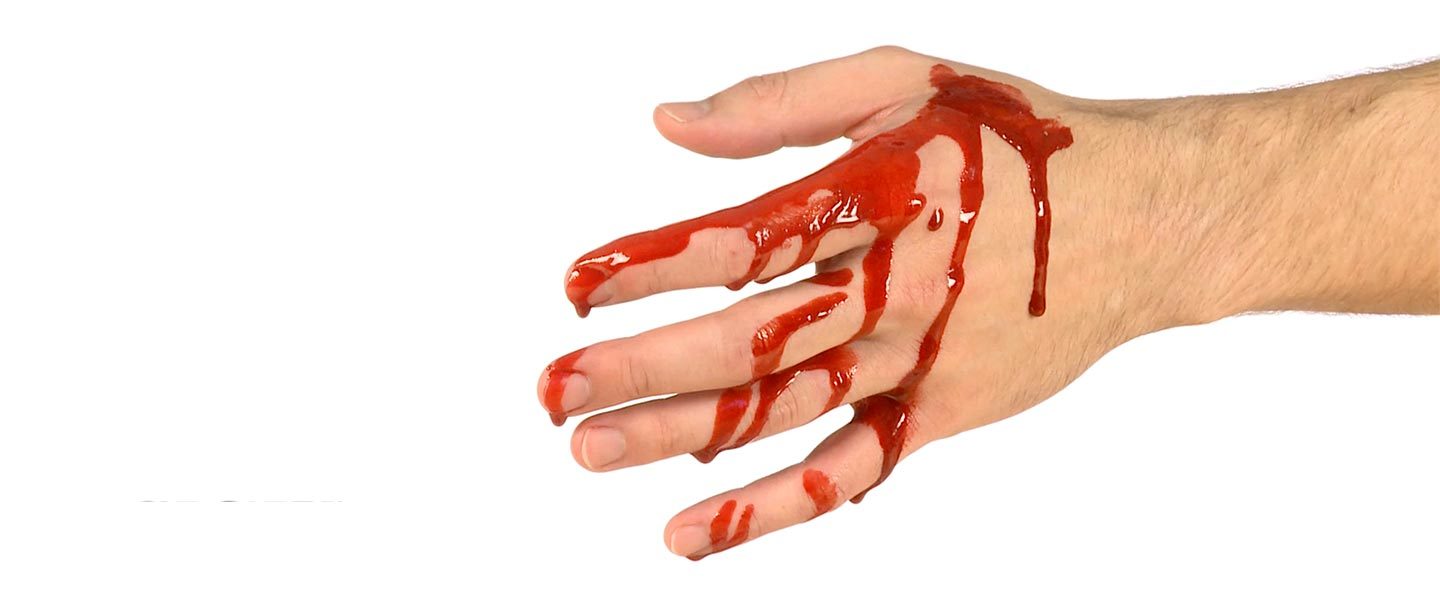
A few gallons of fake blood are just the ticket for your Halloween haunted house, for some innocent pranks, or for emergency preparedness training. The problem is that there are a lot of recipes out there. The biggest complaint is that fake blood looks nothing like real blood… until now, that is. Steve Spangler uses some experimentation to make several very realistic batches.
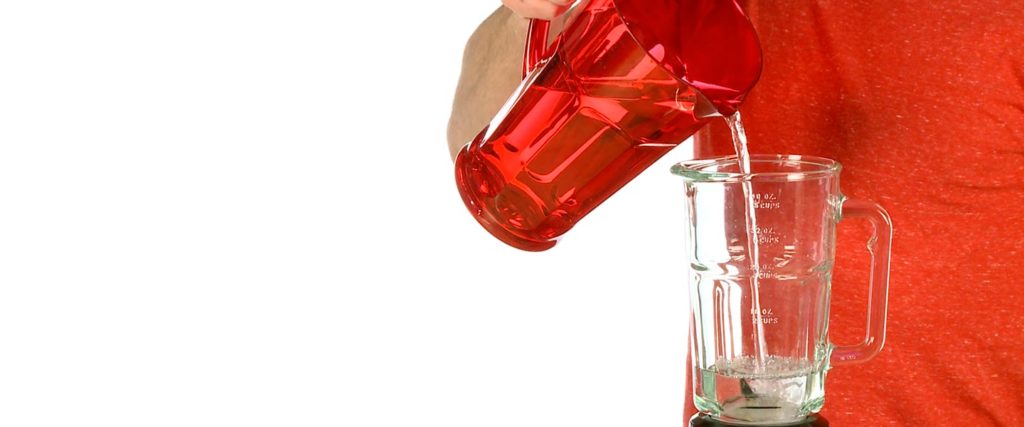
Even though it stains whatever it touches, this is, hands down, the BEST and the easiest to make fake-blood recipe. The secret is the combination of Imperial powdered sugar and cocoa powder. The addition of red food coloring means this the sickest blender-blood you can make! (And that’s a good thing, too.)
Pour the water into the blender.
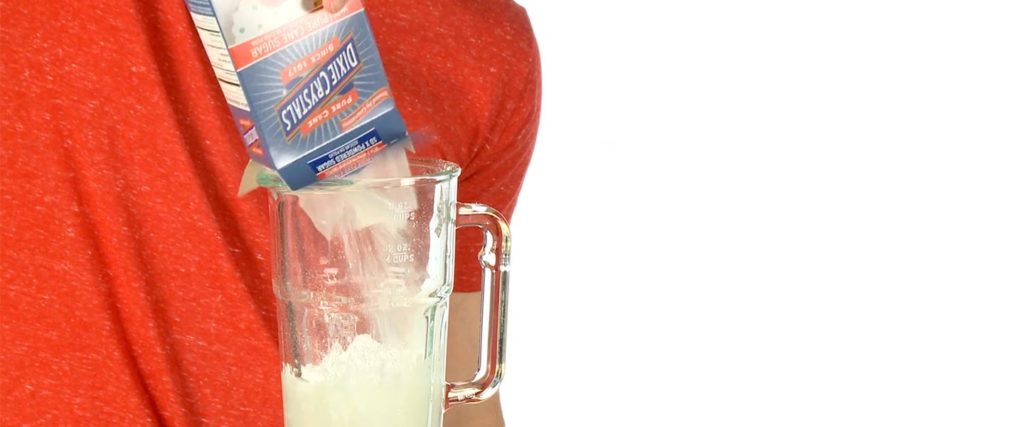
Add the box of powdered sugar (yes, a whole box) to the blender. Put the lid on the blender and blend the mixture on a lower speed. You may need to turn the blender on and then off a few times to make sure it blends together well.
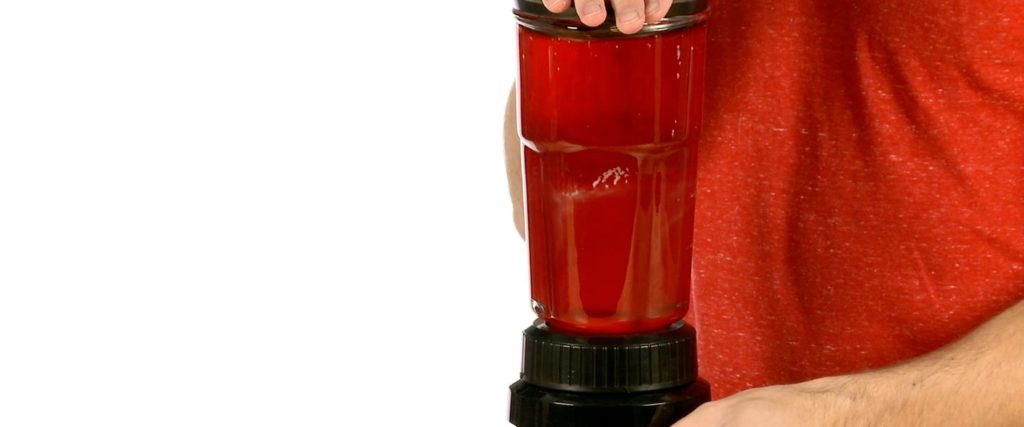
Add the red food coloring to the mixture. One ounce (30 ml) will likely be the whole bottle, too. Blend the mixture and make sure it blends completely. You may need a spatula to scrape the blender walls.
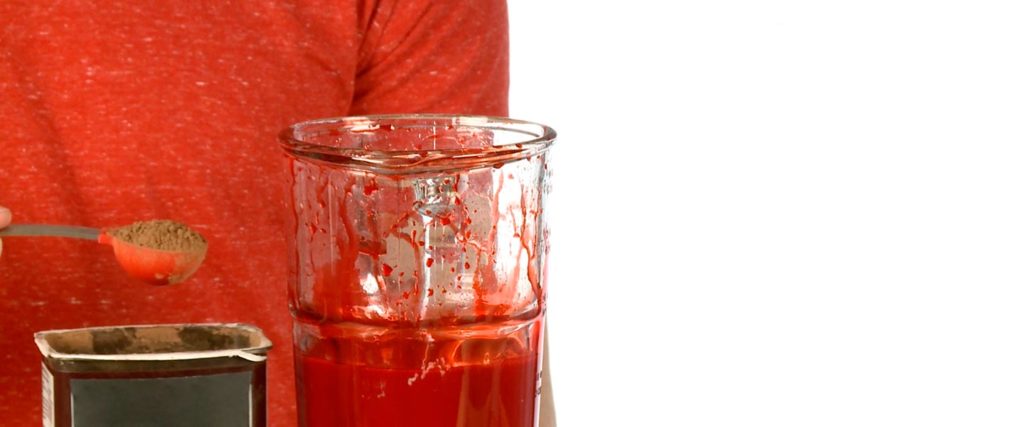
Add the tablespoon of cocoa powder. Blend it again and, you guessed it, make sure it blends completely.
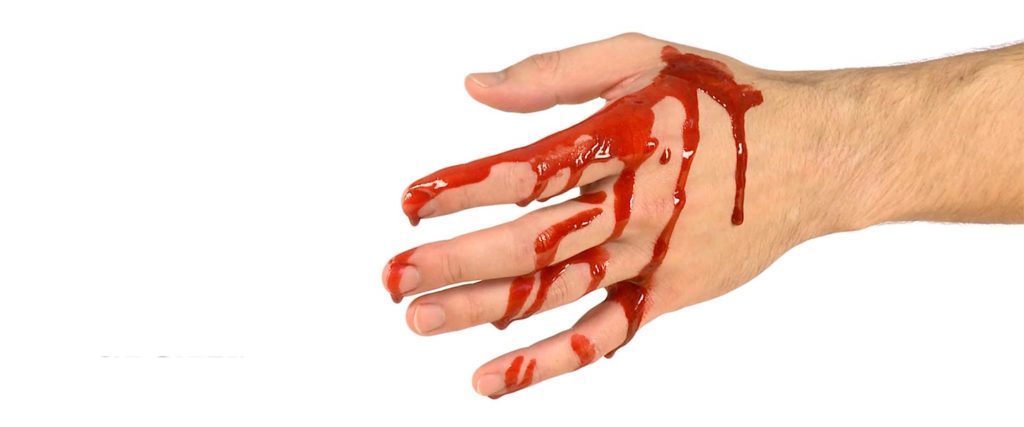
Use a spoon to get some of your fake blood for a test. Drip it and spread it on a cloth, a paper towel, or on your hand. Too cool, Dr. Frankenstein!
This version of fake blood is completely edible (and actually tastes pretty good). However: because you’re using food coloring, this blood recipe will stain anything it touches. Be careful! (But have fun, too.)
The recipes included here are designed to give you the ideas needed to make up your own recipe based on your needs. Most of them require ingredients found at a grocery store making the final product completely edible. That’s just in case you need a little dribble of blood coming out of your mouth!
Believe it or not, the secret tool for making great fake blood is a kitchen blender. Blending the ingredients saves time and helps cut down on the overall mess of making fake blood. When you’re mixing a batch, it’s important to remember that what you see in the blender is not what the product will look like on your skin or dripped onto a piece of fabric. Real blood is not just red… it’s reddish-brown. Real blood is not transparent… has an opaque quality that you’ll need to duplicate in your recipe.
One final word of caution: Making fake blood is a blast but it can be very messy. Also, since the main color agent is a food coloring, fake blood recipes will stain anything and everything! Your hands will be a red mess at the end of your ghoulish mixing session, but don’t worry. A batch of OxiClean will wash your hands, your clothes, and your friends’ clothes.
This is one of the most common recipes you’ll find, but you’ll see that it doesn’t really look anything like blood. That’s fine. Go ahead and make the batch because you’ll use the ingredients a little later on anyway. They all kind of build on each other.
Combine all of these ingredients in the blender for a few seconds. You can adjust the amount of green food coloring to make the blood a little more brownish-red in color. However, you’ll notice that this fake blood is a little too transparent.
Take the paper towel or fabric test: drip a few drops of blood onto a towel to see how realistic it looks to you.
Cornstarch is a common thickening agent for gravies, pie filling, and other goodies. It’s also a great ingredient for fake blood because it adds a little opacity (can’t see through it) to the liquid.
Place all of the ingredients in the blender and mix until the cornstarch dissolves. If the solution is too thick, add a tablespoon of water and blend the ingredients. Keep doing this until the blood is the consistency you need.
Take the paper towel or fabric test: drip a few drops of blood onto a towel to see how realistic it looks to you.
In the days of black and white TV shows and movies, chocolate syrup was the perfect solution to the problem of making fake blood. On a black and white screen, chocolate syrup looked and behaved just like real blood. Even though times have changed, chocolate syrup can still be an important ingredient in making great edible fake blood.
Mix all of the ingredients in the blender for a few seconds. Watch as the fake blood oozes down the inside wall of the blender to get a good idea of what it will look like on the white towel. Each of the ingredients in this recipe adds its own special quality to the fake blood – thickness, color, and opacity.
Take the paper towel or fabric test: drip a few drops of blood onto a towel to see how realistic it looks to you.
This recipe combines everything you’ve learned so far about making fake blood and adds a few ingredients that pack a great punch (pun fully intended… as you’ll see).
Combine all of the ingredients in the blender and mix for 10 seconds. Since brands of fruit punch vary in color, you’ll need to use your vast experience in making fake blood to tweak the recipe to get the perfect batch.
Some fake blood connoisseurs recommend a cup of coffee instead of the fruit punch. You may need to reduce (or eliminate) the amount of chocolate syrup and powdered cocoa used in the recipe if you add coffee. Remember, it’s all about the experimentation!
Take the paper towel or fabric test: drip a few drops of blood onto a towel to see how realistic it looks to you.
Or better yet… roll up your sleeve, drip some on your arm, and then run to a neighbor!
Since all of the ingredients you use in your fake blood are edible, you’ll be OK if you have red teeth or a wound in your mouth. It won’t taste all that great but it’s not poisonous.
As far as storing any clean, unused leftovers, think of your concoction like an edible paint. Use a glass container with a screw-on, airtight lid. Rinse and dry the lid and the threads on the container before screwing on the lid for storage. Keep the jar upright in a location out of direct sunlight. Refrigeration is not necessary but a cool, dark location is preferred. It’s best not to try and salvage used fake blood for long-term storage. Just mix more and have fun doing it!
You DO have to watch out for staining, however. Old shirts and rags are one thing but the living room carpet and mom’s new blouse are entirely another. Be very smart when it comes to applying your newest scientific achievement.